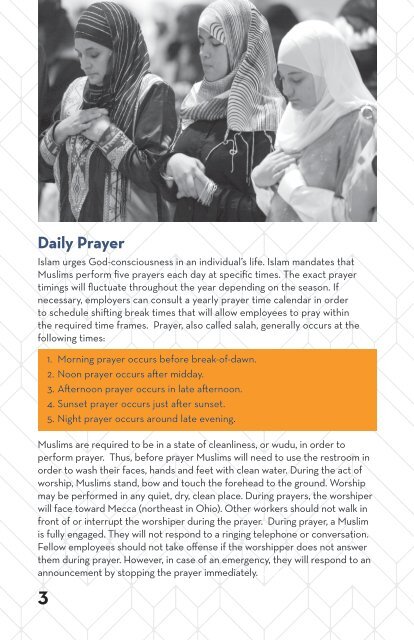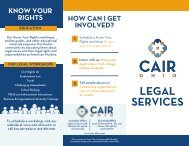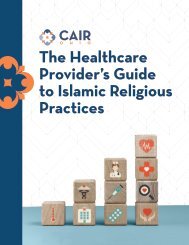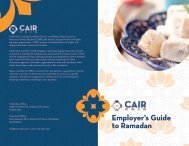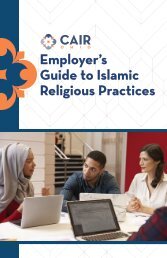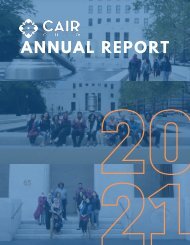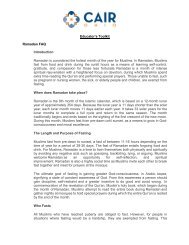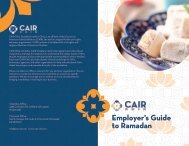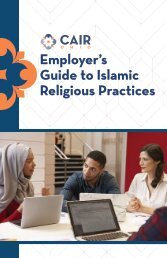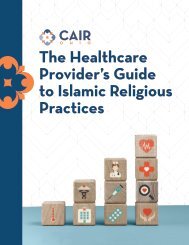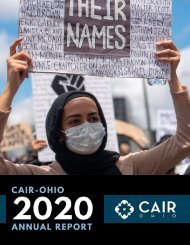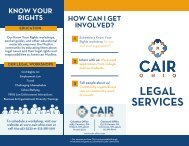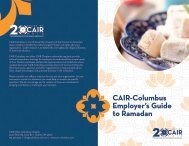CAIR-Ohio Employer's Guide to Islamic Religious Practices
This is a guide for employers that explains some basic Islamic religious practices including dress guidelines, holidays, prayer timing, and fasting, along with some suggested accommodations for employees.
This is a guide for employers that explains some basic Islamic religious practices including dress guidelines, holidays, prayer timing, and fasting, along with some suggested accommodations for employees.
Create successful ePaper yourself
Turn your PDF publications into a flip-book with our unique Google optimized e-Paper software.
Daily Prayer<br />
Islam urges God-consciousness in an individual’s life. Islam mandates that<br />
Muslims perform five prayers each day at specific times. The exact prayer<br />
timings will fluctuate throughout the year depending on the season. If<br />
necessary, employers can consult a yearly prayer time calendar in order<br />
<strong>to</strong> schedule shifting break times that will allow employees <strong>to</strong> pray within<br />
the required time frames. Prayer, also called salah, generally occurs at the<br />
following times:<br />
1. Morning prayer occurs before break-of-dawn.<br />
2. Noon prayer occurs after midday.<br />
3. Afternoon prayer occurs in late afternoon.<br />
4. Sunset prayer occurs just after sunset.<br />
5. Night prayer occurs around late evening.<br />
Muslims are required <strong>to</strong> be in a state of cleanliness, or wudu, in order <strong>to</strong><br />
perform prayer. Thus, before prayer Muslims will need <strong>to</strong> use the restroom in<br />
order <strong>to</strong> wash their faces, hands and feet with clean water. During the act of<br />
worship, Muslims stand, bow and <strong>to</strong>uch the forehead <strong>to</strong> the ground. Worship<br />
may be performed in any quiet, dry, clean place. During prayers, the worshiper<br />
will face <strong>to</strong>ward Mecca (northeast in <strong>Ohio</strong>). Other workers should not walk in<br />
front of or interrupt the worshiper during the prayer. During prayer, a Muslim<br />
is fully engaged. They will not respond <strong>to</strong> a ringing telephone or conversation.<br />
Fellow employees should not take offense if the worshipper does not answer<br />
them during prayer. However, in case of an emergency, they will respond <strong>to</strong> an<br />
announcement by s<strong>to</strong>pping the prayer immediately.m s<strong>to</strong><br />
3


